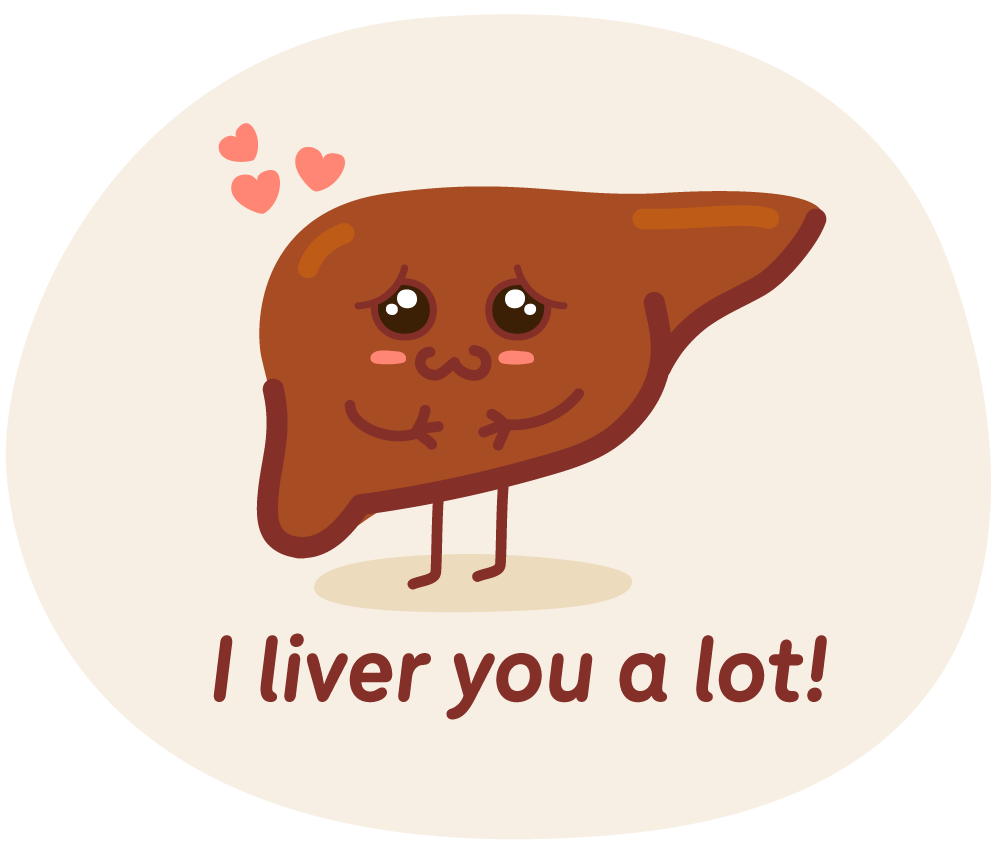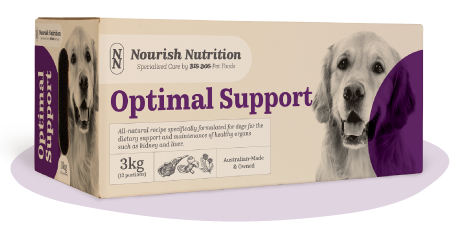Liver Disease in Dogs: Early Signs and Symptoms, Holistic Prevention and Treatment

By Dr Edward Bassingthwaighte, Holistic Veterinarian
Let’s start with explaining the function of the liver. The liver is a very important organ, and does many, many things that are essential to well-being. Your dog’s liver is a major detoxification organ, breaking down harmful substances and toxins, (including prescription medications) into non-toxic compounds that are excreted in the bile, or filtered out of the blood into the urine by the kidneys.
The liver also produces specific proteins that make up blood plasma, synthesises cholesterol and proteins that help carry fats around the body, converts excess glucose into glycogen (energy storage for the body) to keep glucose levels in the right zone, regulates blood levels of amino acids, breaks down haemoglobin from the blood, and stores iron, converts ammonia to urea, regulates blood clotting, supports the immune system and helps the body resist infections by making immune factors, and clears bilirubin from the body.
The liver also performs a whole lot of other biological functions, way too many to list here. It’s incredibly important, and liver disease is a very serious issue, one that we all need to be aware of!

Early signs and symptoms of liver disease in dogs
By the time you see observable signs, there is usually pretty extensive disease, damage, and loss of liver function. But there are early/warning signs that you should be on the alert for. They may be subtle to begin with - fatigue, lethargy, a poor appetite, and weight loss. As things get worse, you might see changes in drinking behaviour (can be reduced or increased drinking), vomiting, and/or diarrhoea, or signs of distress and discomfort. Nausea is quite common. There may be shaking, panting, restlessness, and other signs of pain.
Other signs may include: Digestive upsets such as constipation, gas, or bloating. Changes in the nails, becoming dry, braille, or cracked. Jaundice- yellowing of the whites of the eyes and the skin/mucus membranes. Dark or smelly urine. Irritability, reactivity, aggression. Seizures. A swollen, uncomfortable belly. Spontaneous bruising or bleeding. Head pressing (against walls etc). Gathering of fluid in the belly (ascites). Hepatic encephalopathy (inflammation of the nervous system). Oedema or swelling of the limbs.
However, the best way to track and pick up early signs of liver disease in dogs is regular blood tests. Several liver enzymes become elevated when there is inflammation and damage to the liver. If they are consistently elevated, especially if the levels increase over time, and if there are worsening symptoms, then you will know what’s going on.
Acute liver disease is nearly always because of some kind of toxic insult, or an infectious disease (such as leptospirosis). Acute liver disease may result in fibrosis (scarring) and progress to cirrhosis (severe scarring) and loss of functional capacity.
Causes of acute liver disease include toxins such as acetaminophen (Panadol), NSAIDS - Non Steroidal Anti-Inflammatory Drugs such as Rimadyl, meloxicam, etc, Valium, tetracycline, and sulfa drugs; hepatic lipidosis (fatty liver disease, one of the more common liver diseases in cats;) trauma; heatstroke; and infections (canine infectious hepatitis, Leptospirosis, feline cholangiohepatitis.)
Chronic liver disease may develop over months or years, and in these cases there may be no acute episode. Causes of chronic liver disease include: Genetics, infections (canin infectious hepatitis, leptospirosis, others), toxins and poisons (anticonvulsants, Rimadyl, many others), and idiopathic hepatitis, whose cause is unknown.
Holistic prevention and treatment of Liver Disease in dogs
Let’s talk about prevention first. You want to reduce your dog’s toxic load as much as possible - no pesticides, no artificial fragrances, minimal vaccination, and prescription medications only when needed. And of course, a healthy fresh whole foods diet - preferably raw, BARF is my choice for my pets.
Milk Thistle is a herb that has very well-known hepatic protection and healing properties. It can be used as a preventative, and to treat liver disease. (Please note that it’s not best-used long-term, and if you are using it for long periods, you should give your dog a rest now and then).
In the Western medical model, there aren't any specific treatments for liver disease. Treatment is generally more supportive - acute cases will need to be admitted to the hospital, and be on a drip, and if they are not eating, a nasogastric tube may need to be placed to force-feed them. If there are any toxins or infections that are causing the problem, various treatments to remove the toxin, or antibiotics to deal with infection may be indicated.
Homeopathy can be of great value in treating Liver Disease in dogs, as can acupuncture - because these treatments focus on strengthening and balancing the whole system. Energy healing may be of value for the same reason. It’s probably a good idea to integrate as many different holistic treatments as you can to help your dog with liver failure, because it’s hard to treat, and we don’t have anything specific.
The most important thing you can do is to focus on prevention. Take care to avoid toxic insults. Feed a healthy, fresh wholefoods diet (this is probably the most important thing of all!). Have regular blood tests, so you can pick up the changes before they become symptoms, and before the liver gets permanently damaged. Be aware of breeds with genetic predilections for Liver Disease. Use milk thistle to support healthy liver function. Make sure your home is clear of all toxins that stress and damage the liver. And there is a range of other herbal and nutraceuticals that can be of value in both prevention and treatment: choline, carnitine, arginine, Boswellia, burdock, dandelion root, licorice, nettle, Oregon grape, red clover, turmeric, yellow dock, and maitake mushrooms. If you are going to use herbal medicines, it’s best to have a qualified naturopath or herbalist guide your choices.
And above all, give your dogs LOTS of love!
Big Dog recipe recommendations to support liver health:


About the Author - Dr Edward Bassingthwaighte.

Dr Edward Bassingthwaighte is a holistic veterinarian, and a world-leading expert in silent pain in pets. Dr Edward is passionate about fresh raw whole foods for dogs. He is the founder of the Whole Energy Body Balance method- a profoundly healing bodywork modality for pet parents and pet wellness professionals to relieve silent pain, anxiety and trauma in pets. Join Dr Edward's free masterclass on silent pain in pets here.
